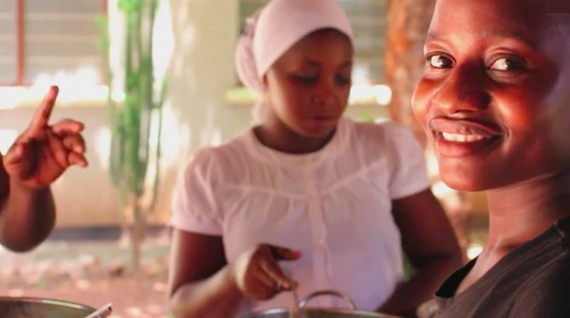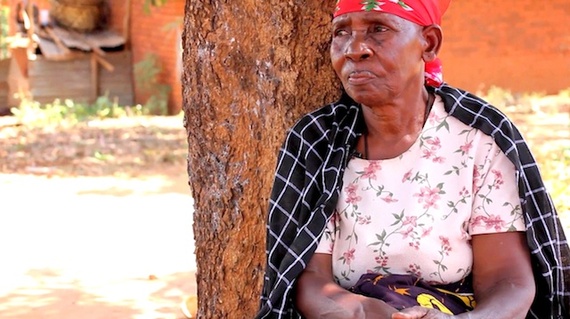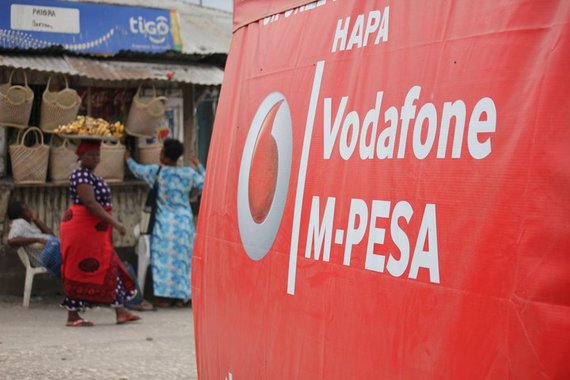Obstetric fistula is perhaps one of the most tragic global health issues we are confronted with today. Women who experience prolonged, obstructed labor (lasting up to 6-7 days) can suffer extreme internal damage leading to unimaginable physical consequences, leaving them incontinent or leaking waste, continuously, for the rest of their lives. Additionally, the ordeal of living with the psychological, emotional, and social scars from fistula can leave a woman feeling worthless and a burden to her society.
In the 10 years since producing my first film on obstetric fistula in Niger called Love, Labor, Loss,found here, I have met many women (ages ranging from 15 to 75) suffering from fistula in countries such as DR Congo, Liberia and Sierra Leone. Regardless of the location, there are countless fistula stories about women who live in extremely remote areas or are too poor to afford the transportation to a facility where free services are available. They are left living their entire lives in physical and social discomfort.
At the same time, I have also seen witnessed incredible fistula repair programs in major hospitals that offer high quality medical interventions with dedicated fistula surgeons and support staff. However, due to women not being to afford the transportation to their hospitals, many of the programs are not operating at capacity. This reality is heartbreaking. The desperation can be felt when hearing endless stories of fistula patients who were so adamant about overcoming transportation obstacles that they saved small amounts of money for decades or walked themselves to facilities in order to have a chance at getting the surgery.
So, when I heard about an innovative fistula program at the CCBRT Hospital in Dar es Salaam, Tanzania -- which utilized the mobile banking system of Tanzania's largest mobile provider (Vodafone) to cover transportation costs -- I was inspired to make a film about it.
Teaming up with UNFPA's Campaign to End Fistula, I embarked on a trip to Tanzania to shoot a short film in an effort to not only showcase this inspiring program but to start dialogue about how the popularity of mobile phones (an estimated 1 billion subscribers is expected to be reached by 2014) can really overcome the obstacles that fistula repair facilities face.
In the small town of Morogoro, I met one of CCBRT's "community ambassadors" -- B'hango Lyangwa -- who helps the hospital identify women living with fistula in his rural areas. B'hango introduced me to Mama Hadija, an elderly woman around 60 years of age who had been living with fistula for over 25 years. She lived in her own hut with her family compound nearby. She, understandably, was very self conscious of her leakage and smell and tried covering up the wet spots she left as she sat and walked around in her hut.
B'hango used his mobile phone (that was provided by CCBRT) and called the hospital to partake in a remote "intake" process. Once it was determined that Mama Hadija did appear to have fistula and would be a candidate for their fistula repair program, the hospital sent transport funds (plus an incentive) to the ambassador via the M-PESA mobile banking system.
We accompanied the ambassador and Mama Hadija to an M-PESA location (similar to a Western Union facility) where he confirmed his transaction with the M-PESA agent and the funds were dispersed. B'hango then escorted Mama Hadija to the bus depot where he ensured she got on the bus, and the driver understood where she was going and who she was going to meet. A few weeks later, Mama Hadija had received a successful surgery and was recovering at the Fistula Ward in the CCBRT Hospital.
Back in 2004 when shooting my first fistula film, I would have never imagined that something as small and simple as a mobile phone could make a huge difference in the lives of women who suffered unnecessarily from a preventable yet tragic childbearing injury such as fistula. But the outcome has proven remarkable. Since starting the M-PESA program, CCBRT reports that the number of clients served rose from 268 in 2010 to 513 in 2013. Also, in 2012, CCBRT reported that 83% of fistula patients were referred through M-PESA to CCBRT.
Given that the mobile phone was so instrumental in identifying and enabling fistula patients to get care, when I began discussing the film's distribution plan in consultation with the Campaign to End Fistula, we decided to continue promoting the power of the mobile phone by launching the "mFistula" advocacy campaign. While the short film provides a glimpse into the story of Mama Hadija and her experience at CCBRT, the mFistula campaign offers viewers of the film to take action by using their mobile phones.
There are three mobile-based action steps where you can use your phone to help women with fistula by:
- Using your phone to forward the film to your social networks;
- Adding support and suggestions for other uses of mobile phones to assist women living with fistula; and
- Making a donation to the Campaign to End Fistula by using their online donation form.
CCBRT is not alone in its efforts to serve more women using mobile phones. The Freedom from Fistula Foundation In Kenya is using mobile bank and community education to provide free fistula repair surgeries. And the Aberdeen Women's Center in Sierra Leone has launched a toll-free hotline to provide information and care options to women living with fistula.
In honor of the second annual "International Day to End Obstetric Fistula" on May 23rd, we invite you to watch the film and join the mFistula campaign to help spread the word. The goal is to collectively celebrate and promote the power of the mobile phone to put an end to this horrific condition so that more women like Mama Hadija can live peaceful and productive lives.
To watch the film and support the mFistula campaign, please visit www.mFistula.org.
For more information on obstetric fistula and the work of the Campaign to End Fistula, please visit www.endfistula.org.



